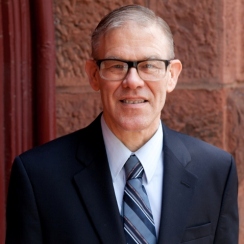An earlier article reviewed the attempts in Western societies to legally suppress the expression of traditional religious sexual morality, even in private. This is because of a larger conflict between truth claims of traditional, pre-Enlightenment religions that clash with the secular liberal vision of the good life. The desire for an homogenous, secular culture unchallenged by traditional religious beliefs and practices fuels a conflict between several European states and what is derided as religious “separatism.” Two areas of conflict are religious education and the public display of religious symbols and practices. The latter issue was covered with respect to France in a Religious Freedom Institute panel, to be reviewed in a subsequent article; this article will touch on some of the conflict in the area of religious education.
A 2004 essay by James Hitchcock, cited in the earlier article reviews how the hard, unchanging demands of pre-Enlightenment religions are unacceptable to secular liberals, and cannot be tolerated. Consequently, the secularist state endeavors to regulate the socialization of children and young people to mold the loyalties and attitudes that it wants.
The first decade of the twenty-first century saw legal clashes in several European countries between religious education and the comprehensive liberalism Hitchcock described, which attempts to embrace all of life in a nontranscendent, secular worldview with the force of law.
Sweden effectively prohibited religious education in 2007, ostensibly in response to Islamic terrorism. Religious schools are religious in name only; they must teach the state’s secular curriculum. In particular, Christianity cannot be taught as the truth. The Swedish education minister at the time, Jan Bjoerklund, said, “Teaching in school must have a scientific basis,” which is to say that education must assume naturalism. A particular concern was the teaching of intelligent design as an alternative to naturalistic evolution. Merely referring to it as an alternative is not legally possible in religious schools, as it is held that only naturalistic explanations can be scientific. God can have no place in the reality Swedish education describes for young people.
Home schooling for religious or philosophical reasons has been prohibited in Sweden since 2011. The high profile case of Dominic Johansson, a little boy taken away from his parents more than ten years ago and now entering adulthood, served to show the inflexibility of a secular society regarding mandatory formation in a secular culture. Similarly, in 2003, the German Constitutional Court ruled, as noted by the Johns Hopkins Institute, that homeschooling may be prohibited by states within Germany to prevent “parallel societies” to the wider secular society, and that “minorities do not have the right to separate themselves from society, but must be integrated through the school system.”
At this same time, religious schools in the U.K. lost the legal right to teach Christian sexual morality as objectively true. This would seem to mean, as well, that on any other topic in which traditional religious doctrine contradicts the state’s doctrine of the good life, religious education is prohibited. Yet, Christian schools cannot be faithfully Christian unless they teach the whole counsel of God, as Christians are mandated to do. Statements from secularists and LGBT advocates at the time insisted that traditional religious believers and their corporate bodies must accept state authority as supreme over religious requirements, and failing to bend to secular authority is an imposition on others (although it is believers who are being required to act against their will to obey God).
However, religious schools in Great Britain were given some exemption from the state doctrine of sexual moral autonomy, in that they were not required to teach the state sex education curriculum. Secularists were enraged about this, essentially holding that the state is competent to pronounce against claims of transcendent revelation, which no merely human government is competent to do. More recently, the British government began to impose mandatory sex education, which takes away the right of parents to withdraw their children from sex education, and very explicitly teaches a morality of consent and moral autonomy with respect to sexual activity. However, the U.K.’s Christian Institute notes that the most recent state guidelines say that sex education must be a balance of different views, “not marginalizing the Christian view, for example.”
There continues to be, however, great animosity toward traditional Christian belief and practice, with the use of the coercive power of the state to require people to live according to a secularist, nontranscendent vision of the good life. Typical in instances of such hostility – as was the case of the Swedish prohibition of religious education noted above – the behavior of strict, sometimes extremist Muslim groups is used to attack traditional religious belief and practice in general, including traditional Christians. In a notable case in Great Britain, a prominent government expert on the integration of isolated and insular communities, Dame Louise Casey, referred to a case in Birmingham, England, in which Muslim teachers told students to boycott certain activities. She then took the occasion to attack Catholic schools for being “homophobic and anti-gay marriage.”
The assault on religious freedom generally, and particularly that of traditional Christians, is also being played out in France. There, a recent instance of Muslim extremism involving the killing of a school teacher, intensified President Emmanuel Macron’s drive to engineer a “French Islam” to the government’s liking, and also to ban homeschooling, which was already under attack by France’s secularist government.
The drive of the current French government to bring Islam in that country into line with what secularists deem tolerable, which involves both restrictions on religious education and public religious expression, was discussed in a recent Religious Freedom Institute webinar, and will be reviewed in this writer’s next two articles.
The next article can be viewed here.






Comment by Rev. Dr. Lee D Cary (ret. UM clergy) on January 5, 2021 at 10:13 am
Christian religion (as distinct from Christianity) died in Europe between 1933-1945. Along with a great many people.